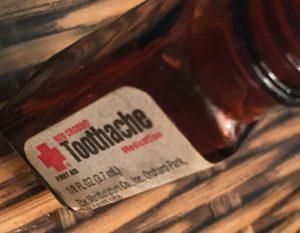 It is always heartening when an old brand survives generations, world wars and multiple depressions and recessions. So it is that we noticed three brands that (sort of) live on, in various states of existence.
It is always heartening when an old brand survives generations, world wars and multiple depressions and recessions. So it is that we noticed three brands that (sort of) live on, in various states of existence.
Esso: The Esso brand is still viable around the world, and just because Raymond Loewy did the Exxon logo for the United States, the great name associated with John D. Rockefeller lives on across the world. What some, however, forget is that ExxonMobil keeps both the Esso and the Exxon brands alive. In the United States, diesel fuel is often sold as Esso Diesel. For companies that have merged a number of brands into one uber company (and that seems to be in every industry these days) keeping and old corporate or product brand alive is fairly simple. You continue to use the brand name on a sub-product. So, for instance, Esso appears across the world and in Canada, but in the states it shows up as a single product.
Nabisco Premium Crackers: A saltine is one of the great taste sensations that has little taste; the lightly crusted crackers achieve a charm unexpected when you dust them with salt. Nabisco Premium is the most venerable of the saltine brands, over Keebler’s Zesta and other store brands. Sadly, there seems to be less and less salt in a Premium, and that’s not good because salt (and of course light if we are reading our Gospel of Matthew) is what makes it zing. Let us remember the words of our savior, and apply them (carefully) to a favorite snack:
You are the salt of the earth. But if the salt loses its saltiness, how can it be made salty again?
Red Cross Toothache: The charity Red Cross is the most dominant use of a red medical cross in the world, and one of the best known trademarks in the world. But before the charity became so corporate, many smaller brands used the red cross on their products and in a variety of product categories. Johnson & Johnson, for instance, used the red cross before the American Red Cross, and about a decade ago, the two giant entities had lawsuits of the use of the cross in emergency preparedness gear licensed by Red Cross, the charity. One small product that also bears the Red Cross is a toothache remedy sold by the Mentholatum company, which is part of Japanese pharma giant Rohto. It’s a very simple product, Eugenol, basically clove oil, and can be used at home and by a dentist. Many people like a Q-tip of eugenol before they get injections for dental work, as the smell helps divert attention from the stick, and the Eugenol dulls the pain. It apparently has a good track record as an antiseptic.

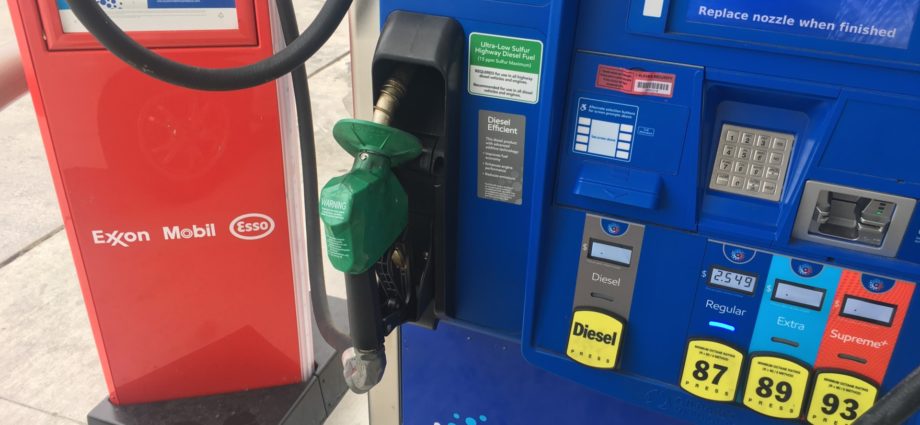

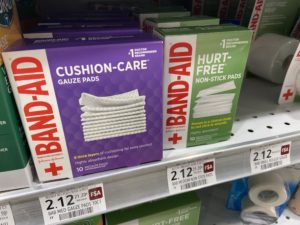
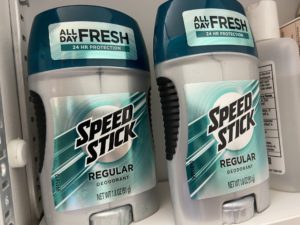
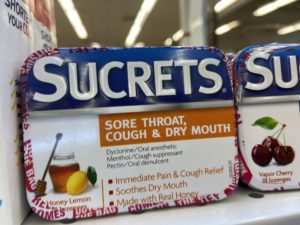
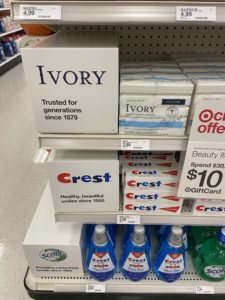
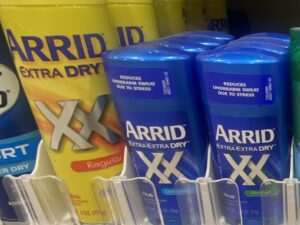
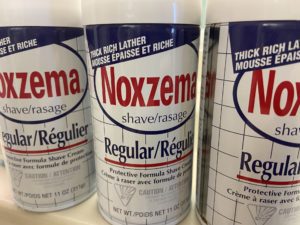
Good to know I’m not losing my mind.
Consumer demand for salt is very strange these days.
People believe salt is unhealthy because too much isn’t good for high blood pressure patients, and then think suddenly its alledged unhealthiness goes away if it’s pink and in a neo-modern bottle marketed to yuppies.
For the record, I still use Morton’s iodized salt.
It’s quite similar to the fear of MSG in “evil foreigner food” but eating Cheetos.
I’ve been using Aji-no-Moto and Accent all my life. So have generations of my family.
A very similar chemical also naturally occurs in Parmesan cheese.
I’m Japanese and Italian, raised between Koube and NYC.
This stuff isn’t a problem for most people. It’s like the sugar-free, carb-free, gluten free fads. It’s a medical restriction for people with a certain disorder, and one day, the whole country wakes up thinking they have it.
The best move would be cashing in on the fad with a specialty version of the product, but keeping the original going as it is. That last clause is what everyone forgets.
You might even end up with a small following that lasts of people with whatever disorder that DO need the product, and once the fad ends, keep it in production, but scaled back, and you won’t fall out of favour with the vast pool of fans of the original when the fad ends.
Premium crackers are also perfect with a soup by many names, but most common name seems to be beef & mac soup. Or Campbell’s Broccoli and Cheese.